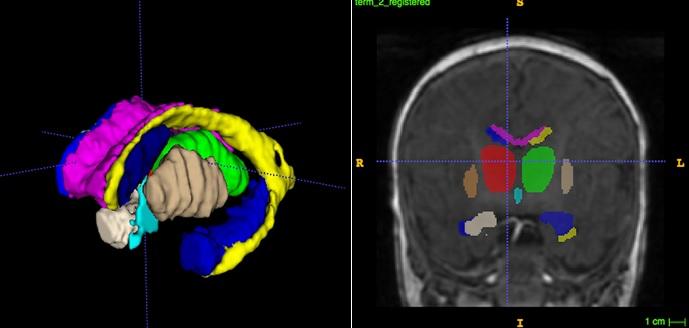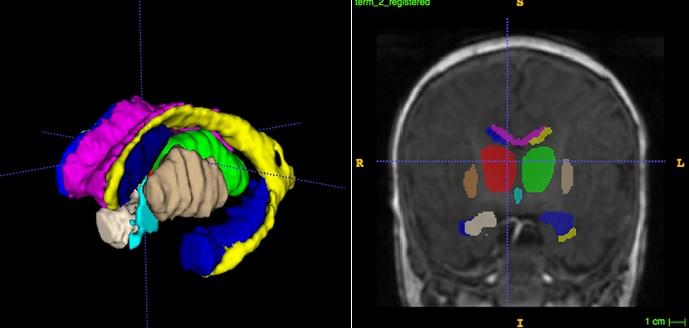
Credit: Children's Hospital Los Angeles
Natasha Leporé, PhD, a principal investigator in the Department of Radiology and Imaging at Children's Hospital Los Angeles, has been awarded $1.7 million from the National Institute of Biomedical Imaging and Bioengineering of the NIH to study the impact of prematurity on brain development. Infants born premature can be at higher risk for cognitive problems and behavioral disorders compared to full-term babies. The goal of the study is to develop biomarkers for early detection of these potential impacts. The expected findings could improve physicians' ability to predict adverse outcomes and design early intervention programs to encourage healthy neurological development for newborns at risk.
"There is growing evidence of significant abnormalities in the structure of the brain beneath the cerebral cortex of premature infants, which may be associated with negative long-term neurodevelopmental outcomes," said Leporé. "Understanding these abnormalities could help explain the underlying causes and enable early detection in at-risk babies."
According to Leporé, there is still a lack of sensitive, reliable, and accessible algorithms capable of characterizing the influence of prematurity on the subcortical structures – the parts of the brain located beneath the cerebral cortex, which regulate functions including the perception of sensations, learning, reasoning and memory. In addition, few studies have looked directly at the long-term neurodevelopmental implications of these structural abnormalities.
"Using brain MRI, we plan to develop biomarkers of prematurity by statistically comparing the subcortical structures and neural pathways of these infants," explained Leporé, who is also an assistant professor of Research Radiology at Keck Medicine of USC.
The research team aims to build a new toolbox of measurements and algorithms to enable the analysis of neonatal brain structures, and to apply them to study the brain structure of infants born prematurely. These results will further be used to predict long-term neurodevelopmental outcomes of prematurity and enable the design of novel approaches to treatment.
"The ability to predict long-term neurodevelopmental outcomes in the first month following birth – and the possibility of intervening during this very early period – is likely to have a transformative effect on the outcome for these children," added Leporé.
###
Co-investigators on this study include Douglas Vanderbilt, MD, Philippe Friedlich, MD, Sharon O'Neil, PhD, Marvin Nelson, MD, Bradley Peterson, MD and Natacha Paquette, PhD, all of Children's Hospital Los Angeles, Yalin Wang, PhD from Arizona State University and Ashok Panigrahy, MD from Children's Hospital of Pittsburgh.
About Children's Hospital Los Angeles
Children's Hospital Los Angeles has been ranked the top children's hospital in California and sixth in the nation for clinical excellence with its selection to the prestigious U.S. News & World Report Honor Roll. CHLA is home to The Saban Research Institute, one of the largest and most productive pediatric research facilities in the United States. Children's Hospital is also one of America's premier teaching hospitals through its affiliation with the Keck School of Medicine of the University of Southern California since 1932. For more information, visit CHLA.org. Follow us on Twitter, Facebook, YouTube, LinkedIn and Instagram, and visit our child health blog (CHLA.org/blog) and our research blog (ResearCHLABlog.org).
Media Contact
Jennifer Marcus
[email protected]
323-361-7236
@childrensLA
http://www.childrenshospitalla.org




